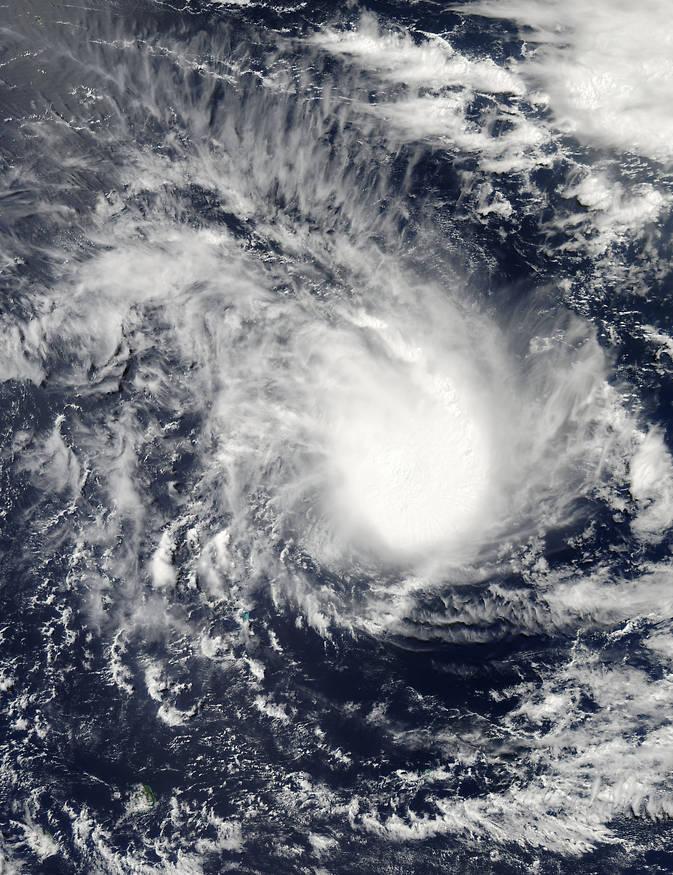NASA sees Tropical Cyclone 22S 'come together right now'

NASA's Aqua satellite captured this visible-light image of Tropical Storm 22S in the Southern India Ocean on April 6 at 09:45 UTC. Credit: NASA Goddard's MODIS Rapid Response Team
The Moderate Resolution Imaging Spectroradiometer or MODIS instrument that flies aboard NASA's Aqua satellite captured a visible image of Tropical Storm 22S as it organized and became a tropical storm on April 6 at 09:45 UTC (5:45 a.m. EDT).
The image was created by the NASA Goddard MODIS Rapid Response Team, at NASA's Goddard Space Flight Center in Greenbelt, Maryland.
The image showed a rounded area of clouds associated with the tropical storm and a band of thunderstorms from the north feeding into the eastern side of the center of circulation.
On April 6, 2015, at 1500 UTC (11 a.m. EDT), Tropical Cyclone 22S' maximum sustained winds were near 45 knots (51.7 mph/83.3 kph).
It was centered near 14.9 south latitude and 61.4 east longitude, about 401 nautical miles (461 miles/ 743 km) northeast of Port Louis, Mauritius. 22S has tracked west-southwestward at 9 knots (10.3 mph/16.6 kph).
22S is moving along the northern edge of a subtropical ridge (elongated area) of high pressure and once that ridge weakens and moves east, the tropical storm will turn to the south and intensify to hurricane-force upon approach to Rodrigues Island.
Rodrigues Island is an outer island in the Republic of Mauritius, located about 350 miles (560 km) east of Mauritius.
Media Contact
All latest news from the category: Earth Sciences
Earth Sciences (also referred to as Geosciences), which deals with basic issues surrounding our planet, plays a vital role in the area of energy and raw materials supply.
Earth Sciences comprises subjects such as geology, geography, geological informatics, paleontology, mineralogy, petrography, crystallography, geophysics, geodesy, glaciology, cartography, photogrammetry, meteorology and seismology, early-warning systems, earthquake research and polar research.
Newest articles

Trotting robots reveal emergence of animal gait transitions
A four-legged robot trained with machine learning by EPFL researchers has learned to avoid falls by spontaneously switching between walking, trotting, and pronking – a milestone for roboticists as well…

Innovation promises to prevent power pole-top fires
Engineers in Australia have found a new way to make power-pole insulators resistant to fire and electrical sparking, promising to prevent dangerous pole-top fires and reduce blackouts. Pole-top fires pose…

Possible alternative to antibiotics produced by bacteria
Antibacterial substance from staphylococci discovered with new mechanism of action against natural competitors. Many bacteria produce substances to gain an advantage over competitors in their highly competitive natural environment. Researchers…





















